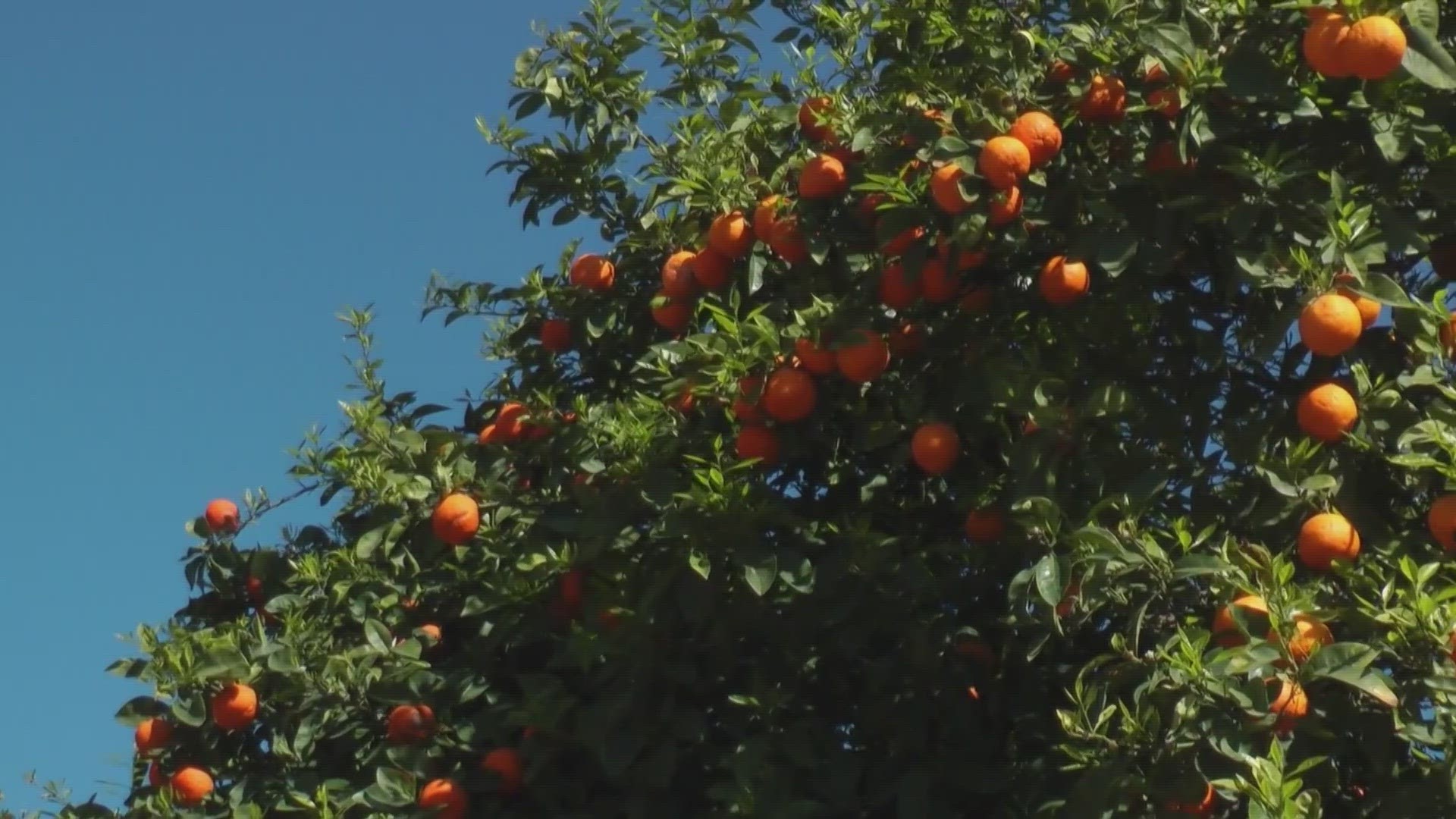WASHINGTON D.C., DC — A chemical company is asking the Environmental Protection Agency for approval to use a dangerous pesticide on Florida citrus fruits again.
Farmers hope the pesticide aldicarb helps fight citrus greening disease, which has devastated Florida's signature crops.
The neurotoxin carries risks. It can impair children's brain development and has been banned in more than 125 countries. The EPA began phasing it out in 2010 but has approved it in the past for certain uses.
Center for Biological Diversity Environmental Health Science Director Nathan Donley said aldicarb is one of the most toxic pesticides in the world.
“If they’re successful, then use of this incredibly toxic could double, even triple or quadruple, and a lot of that," Donley said, "in fact, all of that extra use will be concentrated in the Florida counties that grow oranges and grapefruits.”
The major concern about aldicarb is water contamination.
"It really has an uncanny ability to partition into water," Donley said, "so if aldicarb is used anywhere near groundwater or rivers or lakes or streams, it's going to find that water and it's going to pollute it. There's really no way around it."
The EPA approved an identical request from the pesticide maker in 2021, but the Florida Department of Agriculture and Consumer Services denied the application.
"The citrus industry has been hit hard by greening disease," Donley said, "and there are 18 other insecticides already approved to kill the Asian citrus psyllid, which is the vector of the disease."
AgLogic did not immediately respond to a request for comment.
The EPA is currently accepting public comments on the issue here.

